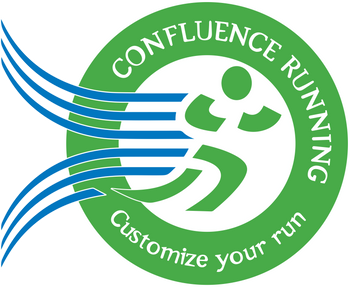How to Return to Running in 5 Steps:
It happens to more people than you might think. Injury, work, kids, another sport, life in general, and all of a sudden, you have taken an extended break from running. At one point, you might have been somewhat in shape, or maybe even fit, but that seems like a distant memory. Now you wonder what it will take to get back to running again or if you even can?
Well, I have good news; the answer is yes. I truly believe YOU can run again and maybe even LOVE it again. I am not promising it is going to be easy, but it might not be as hard as you think.
1.Your Body has a Memory.
Depending on the number of years you consistently ran, the quicker you will be able to get back into it. Your muscles remember those past running movements, and it will be easier to get back into running than when you first started.
2. Patience.
This being said depending on how much time you have taken off your body may be at different stages of detraining. Running is a very specific movement that conditions muscle ligaments, tissues, and tendons. This is where the phrase "Move It or Lose it" comes into play. The longer you have taken off, the more your body has weakened and is why many people injure themselves when they try to return to running. Just because you ran 50 miles a week in your peak condition 5 years ago does not mean you should run 50 miles now; in fact, you shouldn't. When coming back, it is important to Run Slow, Reduce Mileage, Rest & Recover; otherwise, there may not be a comeback at all!
A quick guide to go by:
- Less than 1 week off: Train as usual
- Up to 10 days off: start at 70% of regular mileage
- 15-30 days off: start at 60% of regular mileage
- 1-3 months off: start at 50% of regular mileage
- Over 3 months: Start over and make yourself strong!
3. Silence the Inner Critic.
Don't get in your own head and convince yourself you must go x miles at z pace. Your body needs time to adapt to the movement of running. Celebrate the little wins! No, you might not be able to run a PR right now, but you did just finish a mile. You showing up is what matters!
4.Strength.
I know you want to skip this part and just get to the running, but don't! The goal of most runners is not only to run but to keep on running. Unfortunately, many are forced to take lengthy breaks due to injury. Often running-related injuries are due to lack of strength or muscle engagement. Use this time to get strong, and you will be a better (less injury-prone) runner for it.
Some Weekly Goals for Stronger Running
- Warm-up by doing core and hip exercises before you run
- 2 full-body strength training sessions (You don't need a gym or subscription, youtube and google are your friends. Staff Pick: https://www.youtube.com/watch?v=dSEobUGK7U4)
- If you have specific injury-related exercises you should be doing them, as prescribed, no-excuses, do your homework. (Yes I am looking at all you injured knee /IT Band syndrome runners)
5. Follow a Good Plan
A good training plan will ease you back into running and help tackle some mental hurdles you might face. A training plan keeps you honest and prevents you from overdoing it early on. The training plan you choose should be one that works with your schedule, past injuries, and experience.
A favorite plan among many is the Couch to 5k program, so much so that Confluence Running has developed its own Couch to 5k program! We will start another 8-week session (virtually) on June 15th!
The only thing better than a good plan would be an excellent running coach. A good running coach can give you a personalized plan and take into consideration previous injuries, your fitness level, and the injuries you had. This means that not only will you be able to complete the workouts; you will often find more little wins along the way!
The Extras:
- Don't try to make up missed workouts- keep looking forward, not backward.
- Keep on showing up!
- Be kind to yourself and your body, you might be different now, but that doesn't mean the difference is bad.
- Keep it SLOW, STRONG, and SIMPLE. This will prevent injury and burnout.
- Smile "Exercise gives you endorphins. Endorphins make you happy."-Elle Woods
This post was written by Chloe Peer, a team member of Confluence Running and lover of all things running. Currently, she is taking her own advice as she returns to running after a year off.


